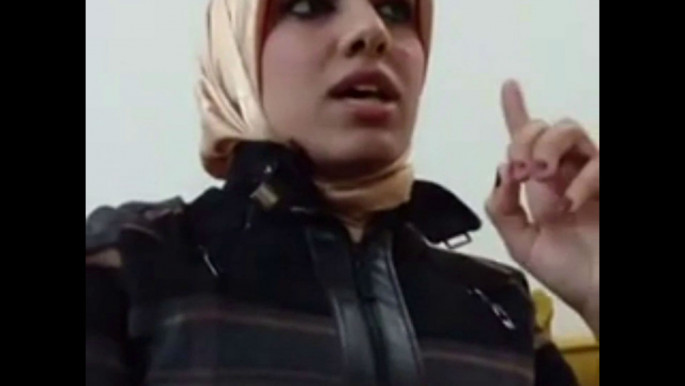'Mysterious' death of Iraq journalist sparks rumours of assassination
The strange circumstances surrounding the death of a controversial Iraqi journalist has sparked reports and rumours that she was assassinated in a politically-motivated retaliatory attack.
Reham al-Abed died on 15 March when her Baghdad flat caught fire in an apparent electrical blaze, according to authorities, but many believe she was silenced for her anti-government reporting.
Abed, who was from the Sunni-majority Anbar province, was a vocal critic of corruption even going as far as accusing senior politicians of graft in videos she posted regularly on Facebook.
"Colleagues of mine have been tortured in the past because of their coverage of corruption cases," journalist Alaa Salman told The New Arab's Iraq correspondent Karam Saadi.
"What I know about corruption and the penetration of killers within government institutions makes me doubt Abed's death was an accident," Salman added.
In one of the fiery videos Abed posted online, she spoke out against the government's detention of thousands of people from Anbar province and accused the military of handing over the city of Ramadi to the Islamic State group in May 2015.
"I want to have to say this but it is very hard for me to be accused of being sectarian. I am not sectarian and have never been - let the whole world know that all Iraqis are my brothers," she said, addressing her critics as she broke down into tears.
In a news report on al-Sharqiya News, her family showed reporters the burnt-out flat of Abed and denied reports that she had been assassinated.
An unnamed source close to Abed, however, told al-Aalem al-Jadeed, that assailants had broken into her home in the al-Adhamiyah district and murdered her. They then covered up the crime by setting the scene ablaze, the source alleged.
 |
|
| Abed was a vocal critic of government corruption [YouTube] |
If these reports are true it would not be the first time a journalist has been killed for their reporting.
In 2001, journalist Hadi al-Mahdi was shot in his Baghdad home by assailants using pistols outfitted with silencers, according to the Committee to Protect Journalists.
Mahdi, who was Shia, had covered government corruption, bribery, sectarianism and had stood up for the rights of Sunnis.
A 2016 report from Freedom House said that Iraq was one of the world's deadliest places for journalists.
"Journalists regularly face harassment, intimidation, and violence from a variety of actors in the course of their reporting," it said.
Seven journalists were killed in the country last year, according to press freedom watchdog Reporters Without Borders, whose 2016 World Press Freedom index ranks Iraq 158 out of 180 countries.
Mohammed al-Jawari, a Baghdad-based correspondent for a pan-Arab media outlet, explained that he writes under a pseudonym because of fears of repercussion.
"Many journalists would be in serious danger if they disclosed who they work for," Jawari said.
"Those employed by Iranian or pro-Iranian outlets work freely using their names, however, those who work for Gulf outlets have to keep their employers a secret."
The reporter described working in journalism in Iraq as "the path to death".
"We are all walking on the path to death. We are up against criminal militias, oppressive political parties and greedy politicians, who resort to killing, kidnaping and arresting journalists who pose a threat to them," he added.
As an international coalition continues to engage in battle against the Islamic State group in Iraq, the war-torn nation has seen several reporters killed while reporting close to the battlefield.
In February, Kurdish news anchor Shifa Gardi was killed by a roadside bomb while covering the Iraqi army's offensive against IS in western Mosul.
Iraqi news media is diverse, but most outlets are owned by or affiliated with political parties and ethnic or sectarian factions, leading to sharply biased coverage.
Suhaib al-Falahi, a member of the Association of Iraqi Journalists Abroad, explained that after the 2003 US-led invasion of the country over 100 media organisations suddenly popped up, creating a "chaotic" media landscape.
"The editorial stance of these organisations follow agendas the majority of which represent the parties and agents who fund them - which has only made matters worse," Falahi said.
"Contributing to the chaos was the sectarianism adopted by these outlets and government use of them to serve their interests," he added.





 Follow the Middle East's top stories in English at The New Arab on Google News
Follow the Middle East's top stories in English at The New Arab on Google News


